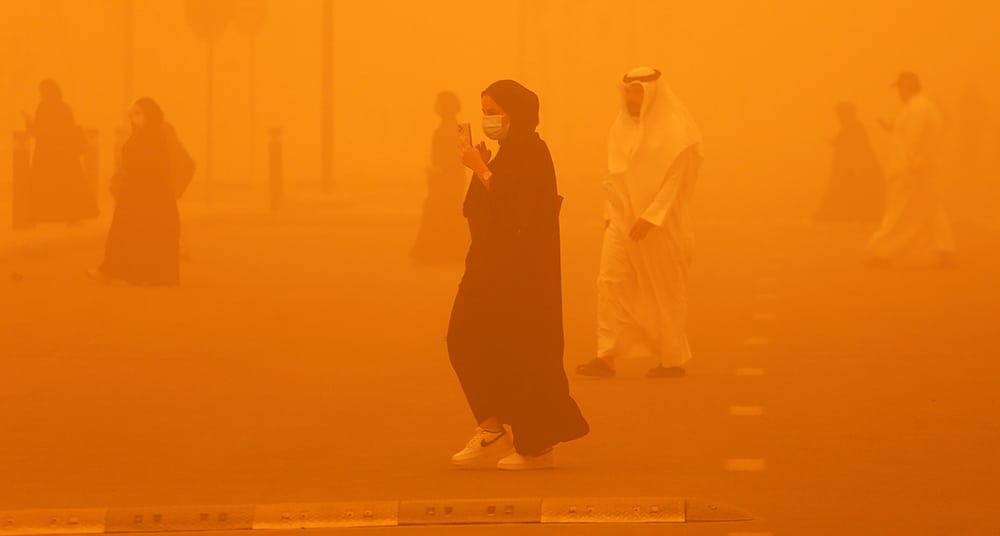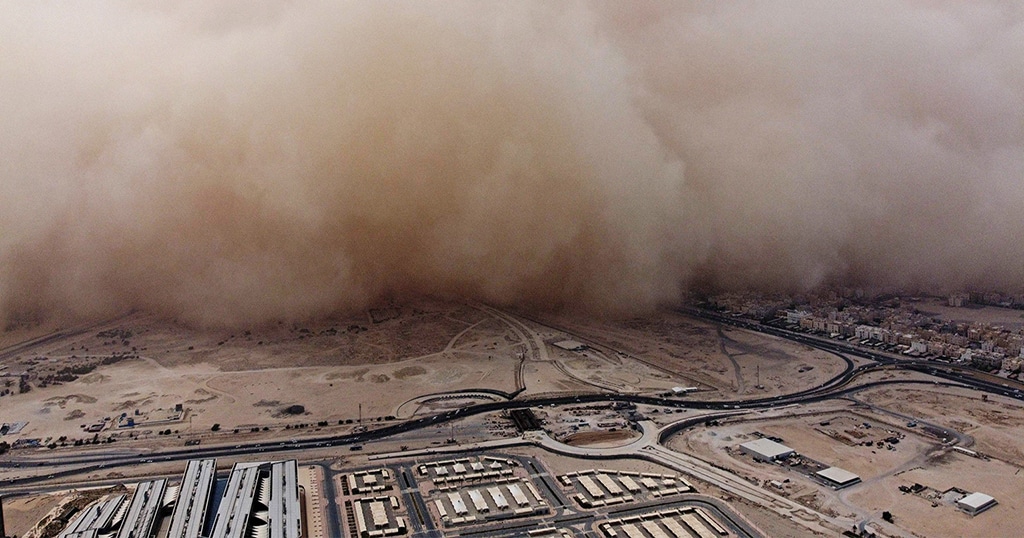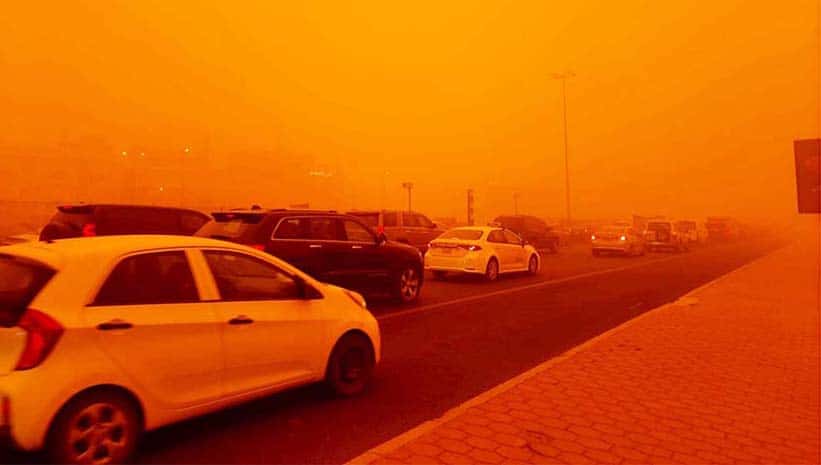KUWAIT: A massive dust storm rolled into Kuwait on Monday, reducing visibility to almost zero across the country, as flights were suspended for a second time this month. Commercial flights will be rescheduled because of current weather patterns, while air traffic will only resume normally once the dust storm subsides, said Emad Al-Juluwi, Kuwait Civil Aviation's Deputy Director General for Air Navigation Services Affairs.
The interior ministry cautioned all citizens and expatriates over the unstable weather conditions, advising the public to contact the emergency hotline 112 for any assistance on the roads. It called on seagoers to contact the coastguard operations on 1880888 if necessary.
The meteorological department had warned the sandstorm will hit the country with active northwesterly wind with speeds of 60 km/h. Yasser Al-Boloushi, an official at the meteorological department, told KUNA that the dust storm may lead to low visibility in some areas and will continue until Tuesday evening. He urged the public to check the weather forecast on their official website www.met.gov.kw and through their smartphone app KuwaitMet.
 Pedestrians cross a road amidst the severe sandstorm.
Pedestrians cross a road amidst the severe sandstorm.The Amiri Diwan said in a statement that due to the weather conditions and out of keenness on safety of the players and spectators, it was decided to delay Monday's final match of HH the Amir Sheikh Nawaf Al-Ahmad Al-Jaber Al-Sabah Football Cup between Kazma and Salmiya at Jaber Stadium until Tuesday. The Ministry of Health announced suspending work Monday at the Kuwait Vaccination Center as well as the Jaber Causeway and Jleeb vaccination centers due to the bad weather conditions.
In neighboring Iraq, public buildings were closed and airports were temporarily shut Monday as another sandstorm - the ninth since mid-April - hit the country. More than 1,000 people were hospitalized across the nation with respiratory problems, health ministry spokesman Seif Al-Badr told AFP, as the region grapples with the increasingly frequent weather phenomenon.
The Iraqi capital Baghdad was enveloped in a giant dust cloud that left usually traffic-choked streets largely deserted and bathed in an eerie orange light, AFP correspondents said. Prime Minister Mustafa Al-Kadhemi ordered all work to cease in state-run institutions, except for health and security services, citing "poor climatic conditions and the arrival of violent sandstorms".
Air traffic was suspended at the international airports in Baghdad, Arbil and Najaf, before flights resumed at Baghdad and Arbil. Iraq is ranked as one of the world's five most vulnerable nations to climate change and desertification. The environment ministry has warned that over the next two decades Iraq could endure an average of 272 days of sandstorms per year, rising to above 300 by 2050. Iraq's previous two sandstorms sent nearly 10,000 people to hospital with respiratory problems and killed one person.
The Middle East has always been battered by sandstorms, but they have become more frequent and intense in recent years. The trend is associated with rising temperatures and water scarcity, the overuse and damming of rivers as well as overgrazing and deforestation. Oil-rich Iraq is known in Arabic as the land of the two rivers, the Tigris and Euphrates, where the ancient civilizations of Mesopotamia flourished.
Iraq's environment ministry has said the increased sandstorms could be countered with more vegetation cover including trees that act as windbreaks. A major dust storm last week swept across the region, reaching Saudi Arabia, Kuwait, Iran and the United Arab Emirates. It left more than 1,200 people hospitalized in Riyadh alone. In Dubai, the world's tallest building was engulfed in a cloud of dust. Experts predict the phenomenon will worsen as climate change warps regional weather patterns, further dries out and degrades soils and speeds up desertification across much of the Middle East. - Agencies












